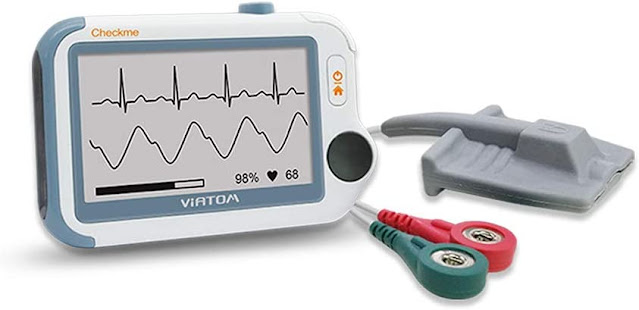Does Coffee Affect an ECG Heart Monitor Readings?
 |
| Does Coffee Affect an ECG Heart Monitor Readings? |
ECG Heart Monitor's like AliveCor’s Kardia and Kardia 6l have made recording easy and convenient. The irregularities in heartbeats after caffeine consumption can easily be tracked on the device.
There is a common belief that coffee seems to increase the risk of irregular heartbeats in people with heart failure but there are researches which have proved otherwise.
Caffeine-rich beverages have long been suspected of causing several heart-related symptoms, such as palpitations or rapid or irregular heartbeats. Because of this, avoiding caffeine consumption is recommended in clinical practice by most physicians for patients with any heart disease.
Generally, the impulses that are recorded are the impulses that precede cardiac muscle contractions during ECG. The ECG procedure is frequently used for the diagnosis of coronary artery disease, heart rhythm disturbances, and inflammation of the protective cardiac membrane. The electrocardiography may also detect the presence of a past heart attack and can indicate if a person is having one at that time.
Sometimes, certain factors can interfere with the reliability of the electrocardiograph test. Stress and anxiety can cause a rapid and irregular heart rate that would not normally be present under normal circumstances. Also, the consumption of certain medications such as cold and allergy medications may skew results because they stimulate the heart.
People who drink coffee and consume other foods and drinks containing caffeine may generally have abnormal electrocardiogram results. That is why, you will be asked to avoid a morning cup of coffee before the test, coffee sometimes makes the heartbeat faster.
Some research has looked specifically at the effects of caffeine on irregular heart rhythms. One study found that the instances of arrhythmia were no different among caffeine consumers and those who didn’t consume caffeine.
In a small Brazilian study, participants with heart problems were randomly told to drink a caffeinated or decaffeinated drink, then assessed with ECGs and stress tests. Researchers found no difference in irregular heart rhythms between the two groups.
The available research suggests that caffeine in doses typically consumed, about 400 mg a day or about five cups of coffee, does not provoke arrhythmias. But coffee is not good for the overall heart health that is the reason doctors ask you to reduce/avoid consumption.

Comments
Post a Comment